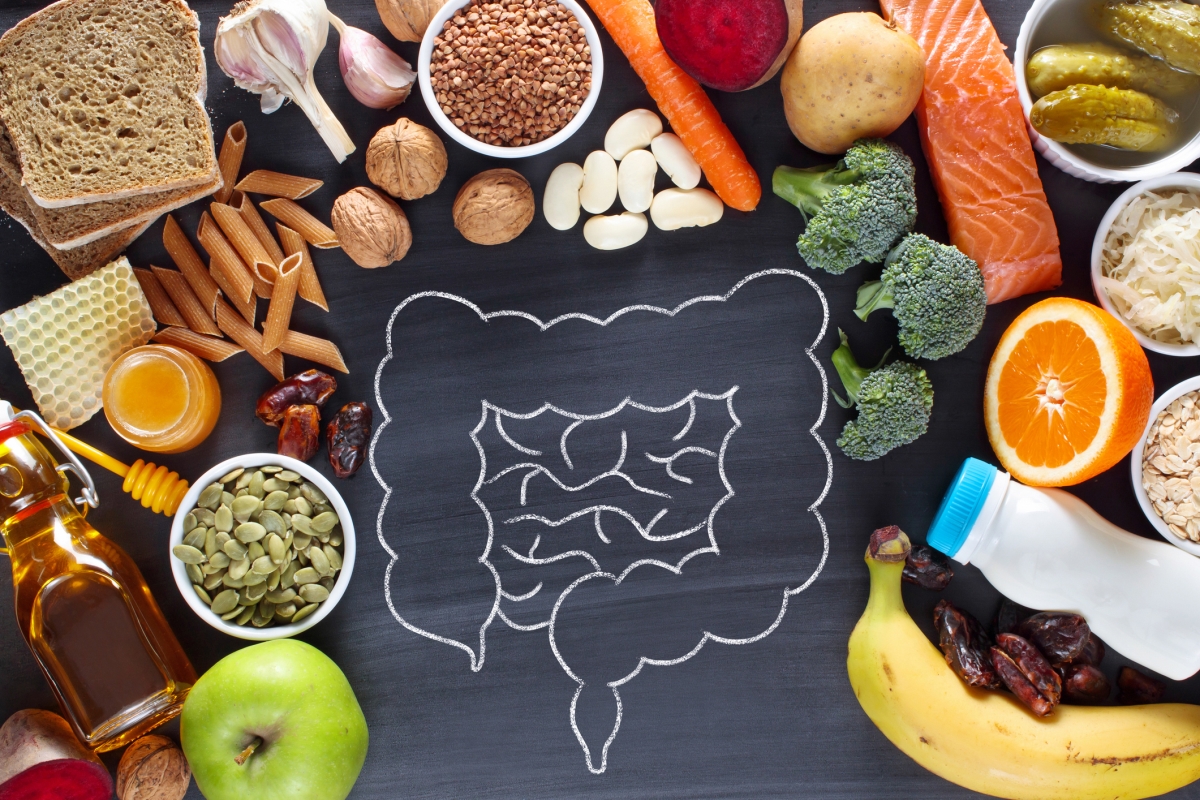
Why are enzymes important to digestion?
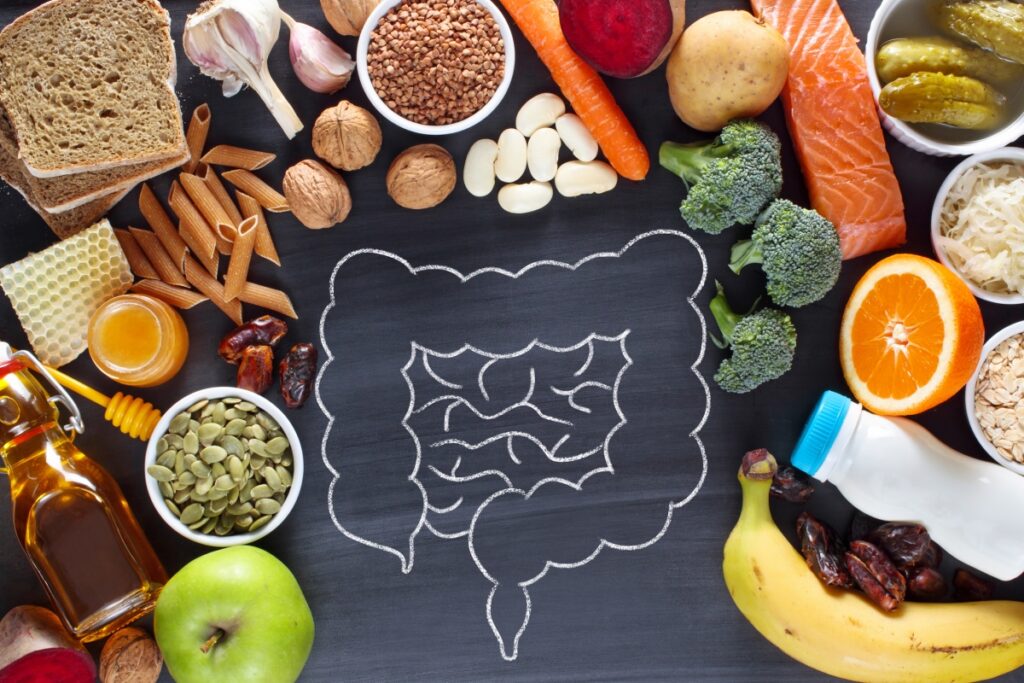

Why are enzymes important to digestion?
People with suboptimal digestion experience:
- Bloating – when your stomach swells up due to the production of gas
- Irregular stool – either being constipated or going too much
- Weight problems
- Immune system compromisation
- Skin issues
- Low mood and concentration
- Tiredness
- Problems with sleep
Therefore, optimizing our digestion to be healthy in all aspects is important. One of the factors that may contribute to suboptimal digestion is the lack of enzymes. Let’s learn what enzymes are and why they’re so important.
What are enzymes?
Enzymes are proteins that speed up biochemical reactions in our bodies. They are also called catalysts because they make biochemical reactions happen. They’re powerful molecules that can be used multiple times. Also, enzymes work specifically, as typically, each enzyme type only performs one type of reaction. We say enzymes help in the conversion of substrate to product.
Enzymes are naturally produced in our bodies and are essential for all the body’s biochemical processes. Digestive enzymes break down food and nutrients into smaller molecules we can absorb. These nutrients are essential for your health.
Digestive enzymes
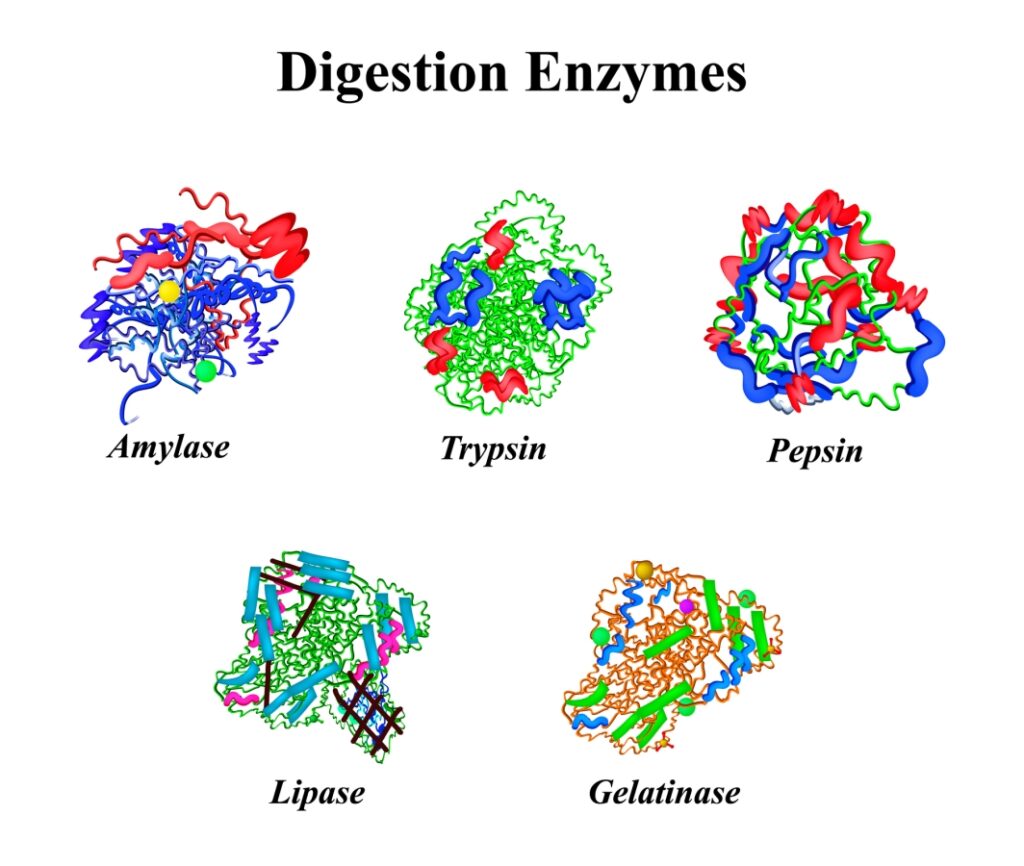
The gut and the pancreas produce digestive enzymes. They break down food (carbohydrates, proteins, and lipids) into smaller molecules. These smaller molecules are easier to absorb and transport throughout the body.
Digestive enzymes are classified based on what they digest. Our enzyme blend contains all of these enzymes to ensure the proper digestion of all food groups:
- Amylase digests starches.
- Alpha galactosidase can digest the milk sugar lactose (milk sugar) into glucose and galactose, reducing potential bloating and other gut problems from milk.
- Cellulase breaks down cellulose fibers into simple sugars.
- Proteases break down peptide bonds of dietary proteins to absorb amino acids.
- Bromelain is extracted from the pineapple, and its digestive activity doesn’t disappear after absorption. It breaks down proteins into amino acids.
- Glucoamylase breaks down partially processed starches into glucose.
- Lactase breaks down lactose, a disaccharide, into simple sugars. Lactose is usually found in dairy products.
- Lipase is responsible for the digestion of fats in food. Specifically, it breaks down triglyceride lipids into free fatty acids and glycerol.
- Invertase catalyzes table sugar (sucrose) into glucose and fructose—two simple sugars.
- Malt diastase helps digest starch into maltose, further broken down into glucose.
- Phytase catalyzes the breakdown of phytic acid or phytates. Phytates are major forms of mineral chelators found in grains and legumes. They bind to important minerals, such as iron, magnesium, and calcium, preventing the absorption of these minerals.
- Pectinase is an enzyme that breaks down pectin found in plants. Pectin is a plant fiber that strengthens plants’ cell walls.
- Hemicellulase can digest hemicellulose, a cellulose found in plant cell walls. Glucans, Galatians, xylans, mannans, and pentosans are different plant hemicellulose types.
- Beta-Glucanase digests carbohydrates, specifically beta-glucan, breaking down the glycosidic bonds within.
- Peptidase is a protease that breaks down dietary proteins into amino acids.
- AstraZyme is a special blend of proteolytic enzymes, including extracts of Astragalus membranaceusPanax notoginseng, and trace minerals.
Many sugars, fibers, and starches are not easily digested, and humans don’t naturally produce enzymes that digest these foods. These are left for your gut bacteria to ferment, which may cause gas and bloating, especially if your gut bacteria aren’t adapted to these foods. Supplemental digestive enzymes can help with digestive discomfort, bloating, and other symptoms you may experience from eating these foods.
What causes enzyme deficiencies or low enzyme function?
Enzymes work best at optimal temperature, pH, and substrate concentration conditions. Your enzymes won’t work well if these factors are not perfect. But diet, some genetic mutations and the following factors can also compromise the work of these catalysts.
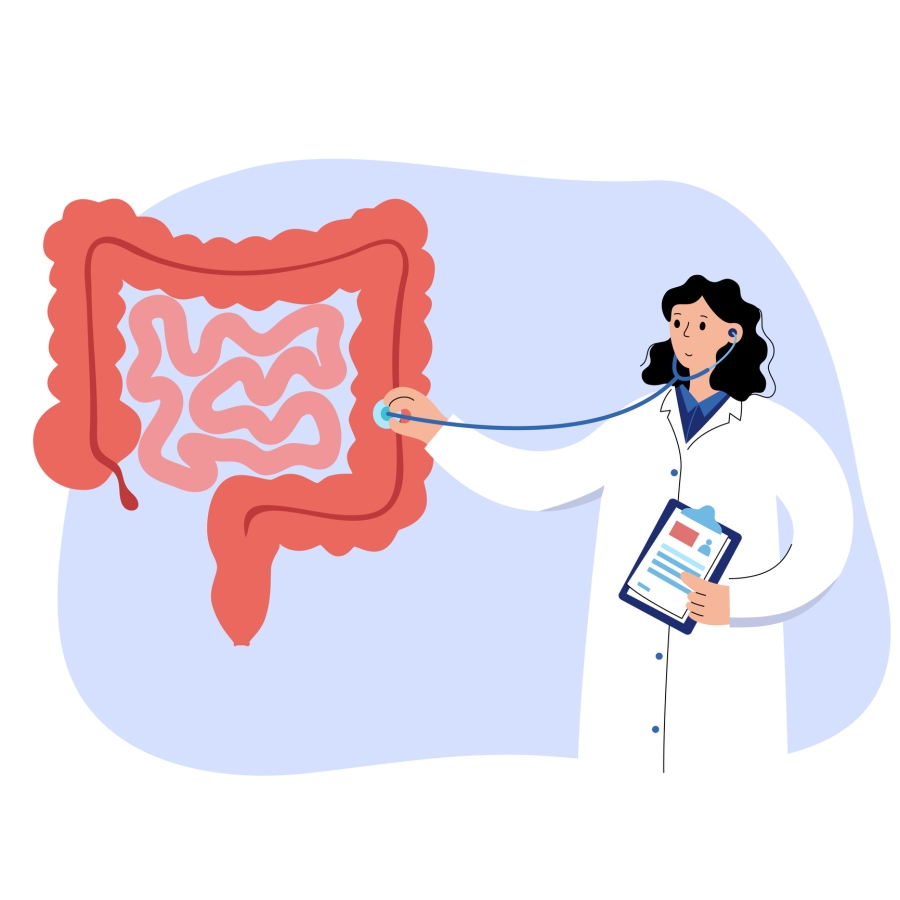
Aging
Aging is also one of the reasons people tend to produce fewer enzymes and stomach acid. This explains why the elderly tend to develop low appetite and nutrient deficiencies, which can lead to problems like:
- Muscle wasting
- Loss of bone mass
- Fatigue
- Issues with cognition
Therefore, maintaining healthy enzyme levels is key to healthy aging and longevity.
Suboptimal pH
The function and activity of enzymes are influenced by the surrounding environment, such as acidity (pH). If the pH is suboptimal for the enzyme, it may not work well or denature.
Insufficient stomach acid can disrupt the work of certain enzymes, especially pepsin, which digests proteins in the stomach.
Eating in a stressed state or eating too much too fast
Our brain and digestive system are connected via the brain-gut axis. Therefore, our mental state can influence our digestion. Eating in a stressed state lowers the resources available for digestion. It reduces blood flow to the gut and the secretion of digestive enzymes and protective mucus.
The stress state reduces the activation of the rest-and-digest mode while promoting the overactivation of the flight-or-fight mode. Rest-and-digest mode, when activated, promotes digestion. Therefore, when you’re stressed, and its activation is reduced, it slows down the digestive process and disrupts the absorption of nutrients.
Fight-or-flight mode has inhibitory effects on muscles in our gastrointestinal tract. Therefore, when there is too much activation of it, mechanical digestion can slow down.
Furthermore, stress can change our bacteria population and environmental conditions. Long-term, this can lead to suboptimal digestion and other gut problems.
Consuming food or drinks that contain enzyme inhibitors
Some food substances can inhibit enzyme functions. This is natural, and most people can eat them just fine. However, too much of it can reduce digestion or nutrient absorption.
Certain food and drinks contain these inhibitors:
- Tea or coffee (high in tannins and other enzyme inhibitors). Therefore, you should avoid drinking tea or coffee with meals if your goal is to maximize digestion. However, you can still consume these beverages away from meals.
- Phytates in legumes and grains (they bind to minerals that are important coenzymes, making the minerals unavailable). Soaking and fermenting these foods may remove some phytates.
- Dairy has components that inhibit some digestive enzymes.
Aside from avoiding these foods, supplementing with more digestive enzymes can also ensure healthy digestion when consumed with enzyme inhibitors.
Damaged gut lining
A “leaky gut” can occur when the gut lining is damaged. Leaky gut syndrome increases intestinal permeability, allowing the entry of toxins and bacteria into the bloodstream. Since many enzymes are secreted from the gut lining, damage can lead to low production of digestive enzymes. Besides enzymes, antimicrobial substances, and immunoglobulins are secreted to fight off pathogens.
Injuries to the cells that line the gut can disrupt their role in food digestion, nutrient absorption, and protection of the human body from microbes. Furthermore, injuries to the cells that secrete enzymes and stomach acid can lead to low enzyme activity, thus resulting in suboptimal digestion.
The damaged gut lining can be caused by:
- unhealthy stress response
- Diet high in gut irritants, such as gluten and lectins
- Smoking and alcohol
- Poor gut health
Supplementation with digestive enzymes may support digestion until the gut lining is repaired, as the production of naturally occurring enzymes may be low.
What happens if you don’t have enough enzymes?
Because gut health is connected to all other areas of health, low digestive enzymes will have negative ripple effects throughout your body. You may experience the following symptoms.
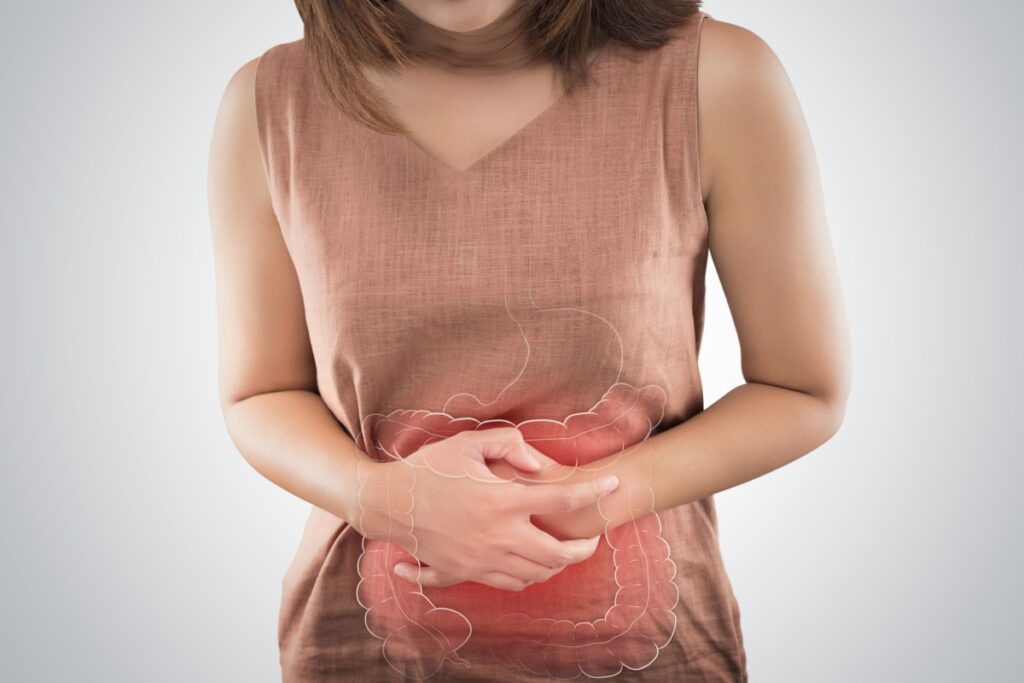
Gut symptoms (indigestion and bloating)
Lack of enzymes can cause gut symptoms, such as poor digestion and bloat.
Poor digestion often manifests as uncomfortable symptoms that occur after eating a meal. It can be related to some gastrointestinal issues. Some of the symptoms that describe this are abdominal discomfort and fullness.
Bloating can be a symptom of poor digestion. Bloating is when your stomach swells up and you feel heavy. Some people can go from having a flat stomach to looking pregnant after eating certain foods. Abdominal discomfort and gassiness are symptoms of bloating as well.
Fatigue
Fatigue can occur after every meal, as digestion with enzyme deficiency requires more energy. You may feel tired, sluggish, heavy, or sleepy soon after eating.
Fatigue has been associated with the release of small inflammation proteins called cytokines. Cytokines control the growth and activity of immune and blood cells. Cytokines increase after a meal, especially if it’s a high-fat/low-carb meal.
Fatigue can also be caused by nutritional deficiencies, the main problem of low enzyme activity or poor nutrient absorption.
Furthermore, fatigue in most people occurs due to iron deficiency, B12 deficiency, and folate deficiency. These can happen from suboptimal digestion, especially with low stomach acids and inadequate enzymes.
People who feel tired after meals from poor digestion often feel relieved or energized once they add digestive support to their meals.
Iron deficiency
Iron makes red blood cells, which help deliver oxygen into tissues. If there is insufficient iron in your body, your body will struggle to produce enough red blood cells and may develop anemia. Anemia can keep your cells and tissues from getting enough oxygen. The lack of oxygen inhibits mitochondria and creates more oxidative stress, causing you to feel tired.
Dietary iron is absorbed in the duodenum and requires stomach acid and an enzyme called ferric reductase. This enzyme is found on the lining of the GI canal, so damage to the gut lining can decrease its availability and activity. Iron won’t be converted to absorbable form, causing insufficient iron in the body.
B12 deficiency
Like iron, vitamin B12 is important for making red blood cells and DNA, producing cellular energy, and maintaining the nervous system. Lack of red blood cells can cause fatigue.
To be absorbed, B12 binds to a protein called R-factor in the mouth, as salivary glands secrete it. Once it passes the stomach, pancreatic enzymes cleave this R-factor, enabling B12 to bind to a glycoprotein called intrinsic factor. This complex enables B12 to be absorbed.
If the activity of these enzymes is compromised, then the R-factor won’t be effectively cleaved, and B12 won’t form a complex with intrinsic factors, resulting in B12 deficiency.
B9 (folate) deficiency
B9 vitamin, also called folate or folic acid, is an essential vitamin for DNA synthesis and red blood cell synthesis.
Folate is absorbed in the small intestine. Elevated pH in stomach acid can lead to poor folate absorption, as a change in pH can lower the activity of digestive enzymes. Low absorption of folate can lead to folate deficiency, which can cause anemia and elevated homocysteine.
Food allergies
Food allergies are immune responses to antigens in certain foods. Consumed proteins, including food allergens, are digested into fragments of 2 to 20 amino acids in the digestive tract under normal conditions. They are broken down by intestinal proteolytic enzymes and absorbed as amino acids through the intestinal wall.
However, it turns out that roughly 15% of protein intake is incompletely digested. These proteins may contribute to food allergies in people with leaky gut.
Therefore, enzyme deficiency can lead to immune responses to these incompletely digested food fragments, possibly leading to allergies.
Nutrition deficiencies
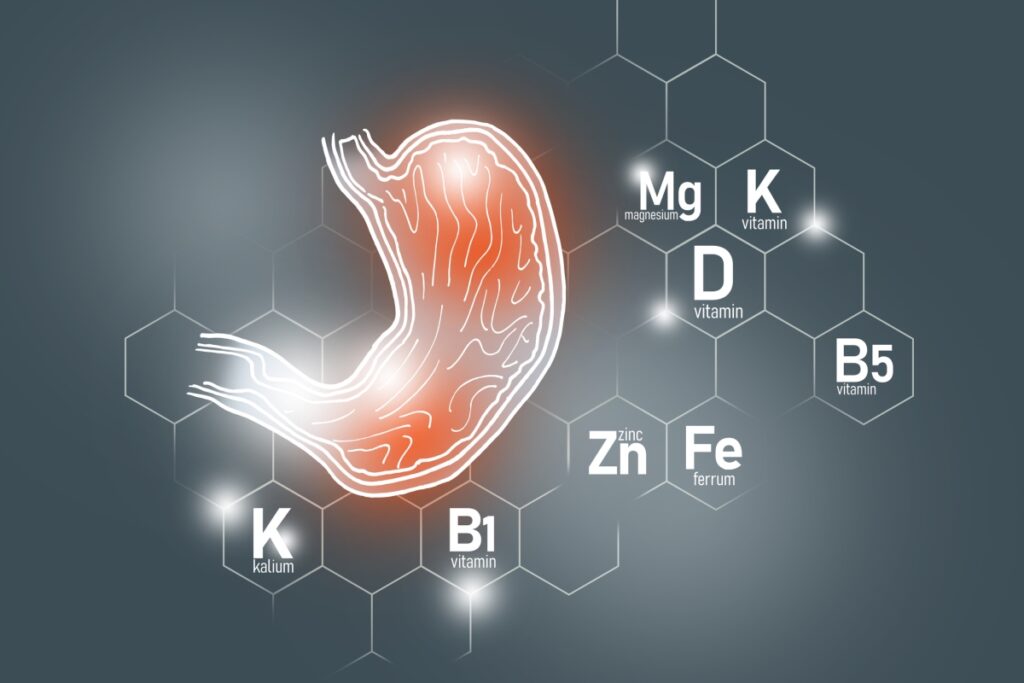
Other nutrient deficiencies can happen with poor digestion and nutrient absorption, even though you eat enough food. These could be vitamins, amino acids, and minerals.
Symptoms of nutrient deficiencies may include:
- Inability to gain muscle
- Fatigue
- Weakness
- Unhealthy weight loss
- Brain and mental health issues.
Bottom Line
Overall, poor digestion from lack of enzymes ripples throughout your entire body. Even if you eat many nutritious foods, a lack of digestive enzymes can cause nutrient deficiencies. It can also allow incompletely digested foods to cause inflammation. Therefore, it is important to support healthy enzyme levels, especially as you age.
Supplementation with digestive enzymes and betaine HCl will help you achieve optimal digestion. Because gut health is linked to all areas of health, many of our customers experience improvements in all areas of their health.
MassZymes is a full-spectrum plant-based, highly concentrated enzyme that contains:
- High concentrations of proteases
- Plant enzymes digest matters we don’t have enzymes for, such as sugars that can cause bloating and phytates that prevent mineral absorption.
- Systemic enzymes that promote healthy tissue and exercise recovery (when taken on an empty stomach)
HCl Breakthrough is a synergistic blend of betaine HCl and digestive enzymes, which can support healthy stomach acid levels.
References
- Lacy BE, Gabbard SL, Crowell MD. Pathophysiology, evaluation, and treatment of bloating: hope, hype, or hot air? Gastroenterol Hepatol (N Y). 2011;7(11):729-739.
- Zhao Y, Yu Y-B. Intestinal microbiota and chronic constipation. Springerplus. 2016;5(1):1130.
- Sweeney TE, Morton JM. The human gut microbiome: a review of the effect of obesity and surgically induced weight loss: A review of the effect of obesity and surgically induced weight loss. JAMA Surg. 2013;148(6):563-569.
- Tang TWH, Chen H-C, Chen C-Y, et al. Loss of gut Microbiota alters immune system composition and cripples postinfarction cardiac repair. Circulation. 2019;139(5):647-659.
- Salem I, Ramser A, Isham N, Ghannoum MA. The gut microbiome as a major regulator of the gut-skin axis. Front Microbiol. 2018;9. doi:10.3389/fmicb.2018.01459
- Clapp M, Aurora N, Herrera L, Bhatia M, Wilen E, Wakefield S. Gut microbiota’s effect on mental health: The gut-brain axis. Clin Pract. 2017;7(4):987.
- Matenchuk BA, Mandhane PJ, Kozyrskyj AL. Sleep, circadian rhythm, and gut microbiota. Sleep Med Rev. 2020;53(101340):101340.
- Cooper GM. The Central Role of Enzymes as Biological Catalysts. Sinauer Associates; 2000.
- Robinson PK. Enzymes: principles and biotechnological applications. Essays Biochem. 2015;59(0):1-41.
- Ash M. Digestive Enzymes. Clinicaleducation.org. Accessed October 2, 2021. https://www.clinicaleducation.org/news/digestive-enzymes/
- Ianiro G, Pecere S, Giorgio V, Gasbarrini A, Cammarota G. Digestive enzyme supplementation in gastrointestinal diseases. Curr Drug Metab. 2016;17(2):187-193.
- Holesh JE, Aslam S, Martin A. Physiology, Carbohydrates. In: StatPearls. StatPearls Publishing; 2021.
- Puertolas MV, Fifi AC. The role of disaccharidase deficiencies in functional abdominal pain disorders-A narrative review. Nutrients. 2018;10(12):1835.
- Causes and Diagnosis of Lactose Intolerance. Institute for Quality and Efficiency in Health Care (IQWiG); 2018.
- Ansari MI, Yadav A, Lal R. An-Overview on invertase in sugarcane. Bioinformation. 2013;9(9):464-465.
- Heena, Verma., Lokesh K. Narnoliya and Jyoti Singh Jadaun. Pectinase: A useful tool in fruit processing industries. Nutr food sci int j. 2018;5(5). doi:10.19080/nfsij.2018.05.555673
- Berg JM, Tymoczko JL, Stryer L. Proteins Are Degraded to Amino Acids. W.H. Freeman; 2002.
- López-Otín C, Bond JS. Proteases: multifunctional enzymes in life and disease. J Biol Chem. 2008;283(45):30433-30437.
- Pavan R, Jain S, Shraddha, Kumar A. Properties and therapeutic application of bromelain: a review. Biotechnol Res Int. 2012;2012:976203.
- Pirahanchi Y, Sharma S. Biochemistry, Lipase. In: StatPearls. StatPearls Publishing; 2021.
- Berka RM, Rey MW, Brown KM, Byun T, Klotz AV. Molecular characterization and expression of a phytase gene from the thermophilic fungus Thermomyces lanuginosus. Appl Environ Microbiol. 1998;64(11):4423-4427.
- Jatuwong K, Suwannarach N, Kumla J, Penkhrue W, Kakumyan P, Lumyong S. Bioprocess for production, characteristics, and biotechnological applications of fungal phytases. Front Microbiol. 2020;11:188.
- AstraZyme. Astrazyme.com. Accessed October 2, 2021. https://www.astrazyme.com/
- Rémond D, Shahar DR, Gille D, et al. Understanding the gastrointestinal tract of the elderly to develop dietary solutions that prevent malnutrition. Oncotarget. 2015;6(16):13858-13898.
- Bowman L, Motamed R, Lee P, et al. A simple and reliable method for determination of optimum pH in coupled enzyme assays. Biotechniques. 2020;68(4):200-203.
- Huerta-Franco M-R, Vargas-Luna M, Tienda P, Delgadillo-Holtfort I, Balleza-Ordaz M, Flores-Hernandez C. Effects of occupational stress on the gastrointestinal tract. World J Gastrointest Pathophysiol. 2013;4(4):108-118.
- Tindle J, Tadi P. Neuroanatomy, Parasympathetic Nervous System. In: StatPearls. StatPearls Publishing; 2020.
- Browning KN, Travagli RA. Central nervous system control of gastrointestinal motility and secretion and modulation of gastrointestinal functions. Compr Physiol. 2014;4(4):1339-1368.
- Foster JA, Rinaman L, Cryan JF. Stress & the gut-brain axis: Regulation by the microbiome. Neurobiol Stress. 2017;7:124-136.
- Berg JM, Tymoczko JL, Stryer L. Enzymes Can Be Inhibited by Specific Molecules. W.H. Freeman; 2002.
- Lindberg T. Protease inhibitors in human milk. Pediatr Res. 1979;13(9):969-972.
- Savage GP, Morrison SC. Trypsin inhibitors. In: Caballero B, ed. Encyclopedia of Food Sciences and Nutrition. Elsevier; 2003:5878-5884.
- Kårlund A, Paukkonen I, Gómez-Gallego C, Kolehmainen M. Intestinal exposure to food-derived protease inhibitors: Digestion physiology- and gut health-related effects. Healthcare (Basel). 2021;9(8):1002.
- Mu Q, Kirby J, Reilly CM, Luo XM. Leaky gut as a danger signal for autoimmune diseases. Front Immunol. 2017;8:598.
- Camilleri M. Leaky gut: mechanisms, measurement and clinical implications in humans. Gut. 2019;68(8):1516-1526.
- Kong S, Zhang YH, Zhang W. Regulation of intestinal epithelial cells properties and functions by amino acids. Biomed Res Int. 2018;2018:2819154.
- Paray BA, Albeshr MF, Jan AT, Rather IA. Leaky gut and autoimmunity: An intricate balance in individuals health and the diseased state. Int J Mol Sci. 2020;21(24):9770.
- Schachter H. Indigestion and Heartburn. In: Walker HK, Hall WD, Hurst JW, eds. Clinical Methods: The History, Physical, and Laboratory Examinations. Butterworths; 2011.
- Harmon RC, Peura DA. Evaluation and management of dyspepsia. Therap Adv Gastroenterol. 2010;3(2):87-98.
- Seo AY, Kim N, Oh DH. Abdominal bloating: pathophysiology and treatment. J Neurogastroenterol Motil. 2013;19(4):433-453.
- Lehrskov LL, Dorph E, Widmer AM, et al. The role of IL-1 in postprandial fatigue. Mol Metab. 2018;12:107-112.
- Azzolino D, Arosio B, Marzetti E, Calvani R, Cesari M. Nutritional status as a mediator of fatigue and its underlying mechanisms in older people. Nutrients. 2020;12(2):444.
- Cameron EW. Iron deficiency anaemia. Clin Radiol. 1995;50(4):276.
- Moustarah F, Mohiuddin SS. Dietary Iron. In: StatPearls. StatPearls Publishing; 2021.
- Ems T, St Lucia K, Huecker MR. Biochemistry, Iron Absorption. In: StatPearls. StatPearls Publishing; 2021.
- O’Leary F, Samman S. Vitamin B12 in health and disease. Nutrients. 2010;2(3):299-316.
- Merrell BJ, McMurry JP. Folic Acid. In: StatPearls. StatPearls Publishing; 2021.
- Khan KM, Jialal I. Folic Acid Deficiency. In: StatPearls. StatPearls Publishing; 2021.
- Yu W, Freeland DMH, Nadeau KC. Food allergy: immune mechanisms, diagnosis and immunotherapy. Nat Rev Immunol. 2016;16(12):751-765.
- Gocki J, Bartuzi Z. Role of immunoglobulin G antibodies in diagnosis of food allergy. Postepy Dermatol Alergol. 2016;33(4):253-256.
- Shenkin A. Micronutrients in health and disease. Postgrad Med J. 2006;82(971):559-567.
- National Research Council (US) Subcommittee on the Tenth Edition of the Recommended Dietary Allowances. Protein and Amino Acids. National Academies Press; 1989.
- Tardy A-L, Pouteau E, Marquez D, Yilmaz C, Scholey A. Vitamins and minerals for energy, fatigue and cognition: A narrative review of the biochemical and clinical evidence. Nutrients. 2020;12(1):228.
